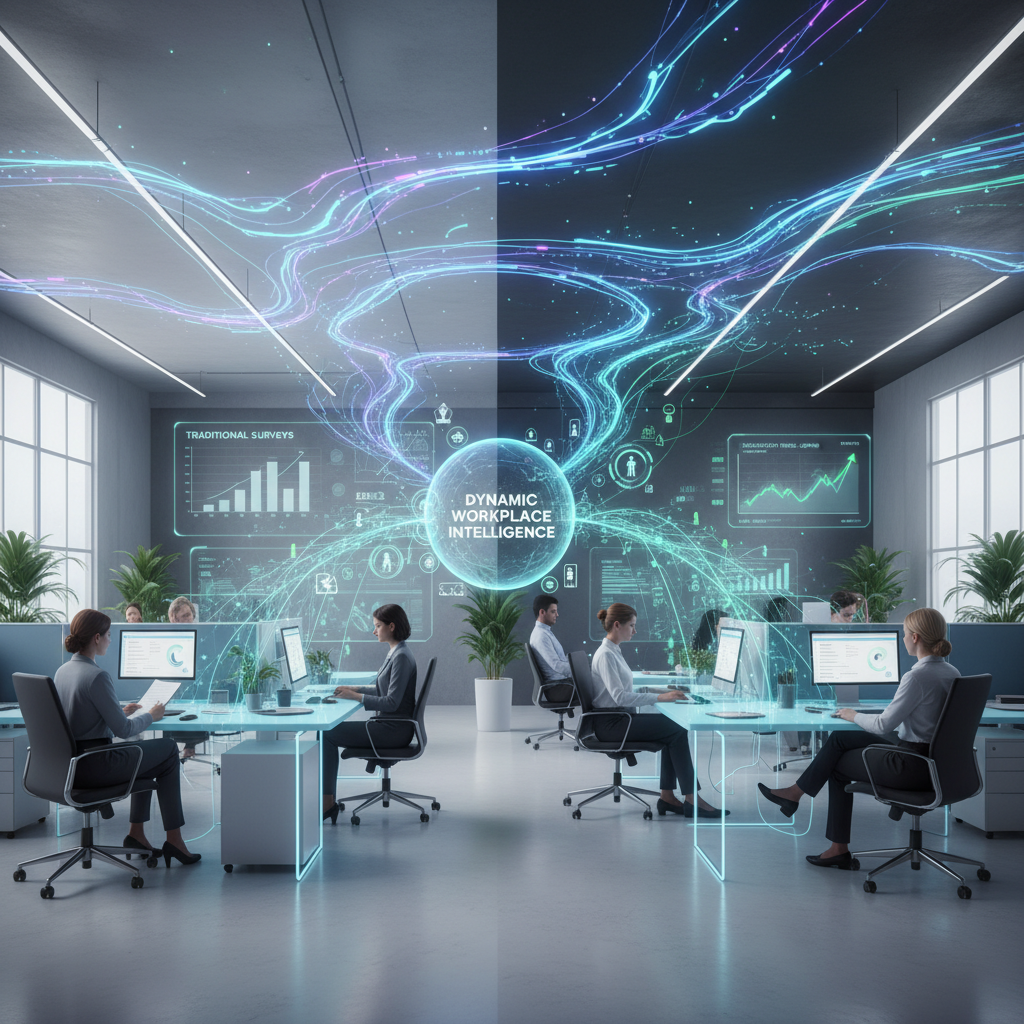
Frameworks, core principles and top case studies for SaaS pricing, learnt and refined over 28+ years of SaaS-monetization experience.
Thank you! Your submission has been received!
Oops! Something went wrong while submitting the form.
Join companies like Zoom, DocuSign, and Twilio using our systematic pricing approach to increase revenue by 12-40% year-over-year.

In today's rapidly evolving workplace, organizations are increasingly turning to advanced technologies to solve one of their most persistent challenges: employee engagement. As companies navigate the complexities of hybrid work environments, changing employee expectations, and competitive talent markets, a new category of solutions has emerged—agentic AI-powered workplace intelligence systems. These sophisticated platforms are revolutionizing how organizations understand, measure, and improve employee engagement, creating more responsive and human-centered workplaces.
Agentic AI represents a significant evolution beyond traditional artificial intelligence systems. Unlike conventional AI that follows rigid programming, agentic AI systems can operate with greater autonomy, make decisions based on goals, and interact more naturally with humans. For employee engagement, this distinction is crucial.
Traditional employee surveys and feedback tools often provide static, point-in-time insights. In contrast, agentic AI-driven workplace intelligence systems can continuously analyze workplace patterns, adapt to changing conditions, and proactively suggest interventions—essentially becoming an always-on engagement partner.
According to research from PwC, organizations that leverage AI for HR functions report 22% higher employee satisfaction scores and 30% improvements in retention compared to those using conventional methods.
Modern workplace intelligence platforms typically incorporate several interconnected elements that create a comprehensive engagement ecosystem:
Effective workplace intelligence systems gather data from diverse sources, creating a holistic view of engagement:
A 2023 study by MIT Sloan Management Review found that organizations using multi-channel data collection for engagement analysis achieved 28% higher accuracy in predicting employee turnover than those relying on surveys alone.
The core advantage of agentic AI lies in its ability to perform nuanced satisfaction analysis that goes beyond surface-level metrics:
"The ability to detect subtle shifts in engagement through linguistic and behavioral patterns gives organizations a 3-4 month head start on addressing potential issues before they manifest as turnover," notes Dr. Melissa Thompson, organizational psychologist at Harvard Business School.
What truly distinguishes advanced workplace intelligence systems is their ability to move beyond analysis to prescription:
Deloitte's Human Capital Trends report indicates that organizations implementing AI-driven engagement optimization see an average 18% improvement in employee Net Promoter Scores within the first six months.
Forward-thinking companies across industries are already leveraging workplace intelligence systems with remarkable results:
Microsoft's workplace analytics platform uses agentic AI to provide personalized recommendations for improving work-life balance, meeting effectiveness, and collaboration patterns. Early adopters report 15-25% improvements in employee wellbeing metrics and significant reductions in after-hours work.
Salesforce has integrated workplace intelligence capabilities that analyze collaboration patterns, work preferences, and career development opportunities. The system provides managers with engagement optimization suggestions that have reduced early-career turnover by 32%.
IBM's internal deployment of Watson-powered workplace intelligence analyzes satisfaction drivers across global teams, accounting for cultural variations and work style differences. The system has contributed to a 28% improvement in engagement scores among remote employees.
While the potential benefits are substantial, organizations must navigate important ethical considerations when implementing workplace intelligence systems:
Employees must understand what data is being collected, how it's being used, and who has access. Leading organizations establish clear governance frameworks and opt-in models that build trust in workplace intelligence initiatives.
Workplace intelligence systems must be carefully designed to avoid perpetuating existing biases. Regular audits and diverse training data are essential to ensure equitable outcomes across demographic groups.
The most successful implementations position agentic AI as an enhancement to human judgment rather than a replacement. As Josh Bersin, global HR analyst, notes: "The goal isn't to automate engagement but to augment managers' ability to create meaningful human connections."
For organizations considering workplace intelligence systems, a phased approach typically yields the best results:
As workplace intelligence systems evolve, we're witnessing the emergence of increasingly sophisticated capabilities that promise to transform employee engagement:
According to Gartner, by 2025, more than 75% of large enterprises will use some form of agentic AI in their employee engagement strategies, up from less than 30% in 2022.
In an era where talent represents both the greatest expense and the greatest opportunity for most organizations, workplace intelligence systems powered by agentic AI offer a compelling advantage. These platforms transform engagement from an annual survey exercise to a continuous, data-driven practice that can adapt to changing workplace dynamics.
Organizations that successfully implement these systems gain not just incremental improvements in satisfaction metrics, but fundamental insights into the human dynamics that drive their success. As the technology continues to evolve, the gap between organizations that leverage workplace intelligence and those that rely on traditional approaches will likely widen—making this an increasingly strategic investment for forward-thinking leaders.
The future of employee engagement isn't just about collecting more data—it's about developing more intelligence around how people work, what drives their satisfaction, and how organizations can create environments where both humans and technology thrive together.

Join companies like Zoom, DocuSign, and Twilio using our systematic pricing approach to increase revenue by 12-40% year-over-year.